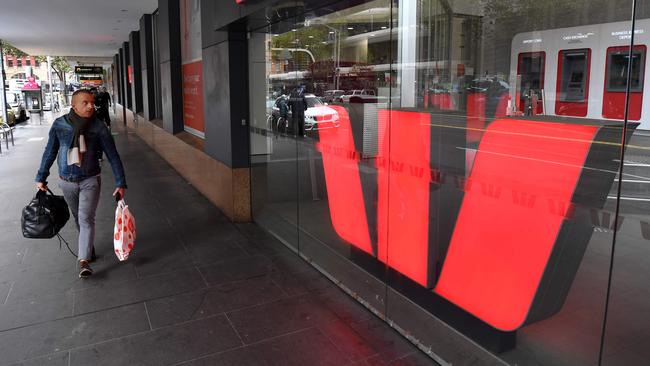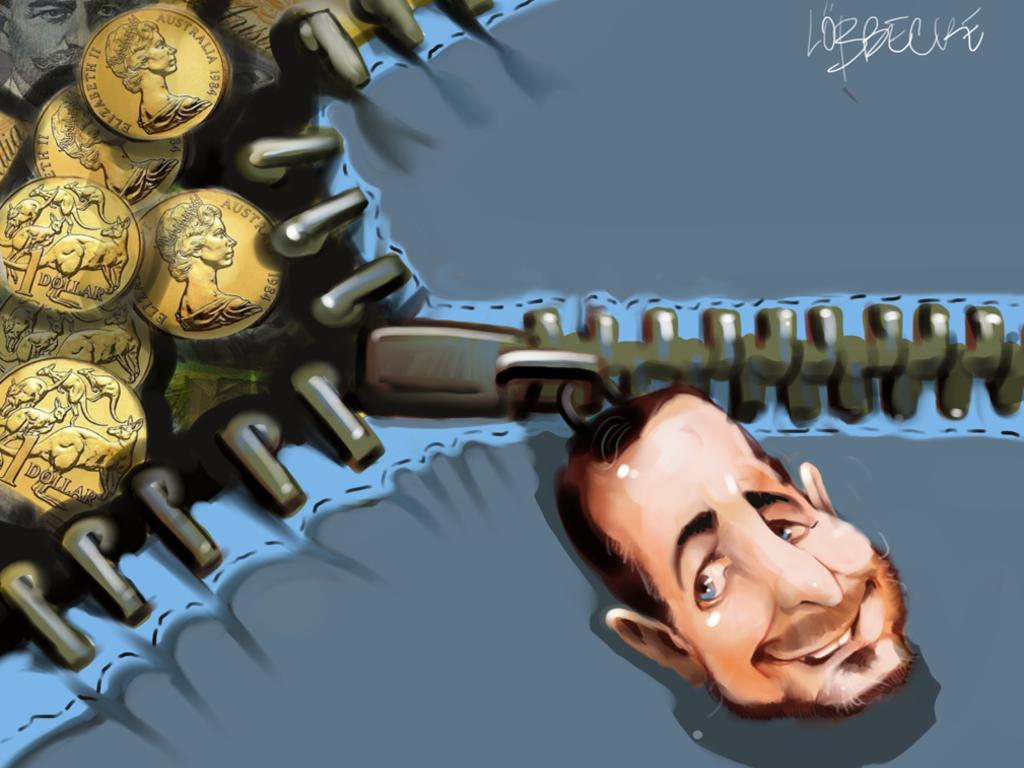Tech, human error and sleepy board blamed for Westpac’s Austrac failings
Human error, technology and a sleepy board have been blamed for failings that led to Austrac’s probe of Westpac over child exploitation transactions.

A top level panel set up to investigate Westpac’s shortcomings in its alleged anti-money laundering failings concluded poor information flows to management and a crowded risk agenda for the board were among key causes for failure to detect and reports millions of transactions.
Among a range of conclusions that have been acknowledged and accepted by Westpac, it also found a lack of urgency at the board level to follow up on anti-money laundering red flags when they arose.
The bank’s top executives are given a relative pass in that it found “no evidence” that greed, self-interest, or remuneration incentives played any obvious part in Westpac’s approach to its financial crime monitoring obligations – even in those areas of underperformance.
A separate board accountability review undertaken by a three-person panel found that directors “could have recognised earlier” some of the systemic financial crime issues Westpac was facing.
“It’s been my experience since joining the bank that Westpac deeply regrets this matter. Indeed, recognising the seriousness of the issues raised by AUSTRAC, the former CEO stepped down and the former chairman brought forward his retirement,” Westpac chairman John McFarlane said a statement released to the ASX announcing the findings.
Mr McFarlane agreed that the entire Austrac episode had been a “dark period” for Westpac.
“It was sufficiently dark that we lost the chief executive, the chairman and a senior director,” he told The Australian.
“We need to emerge back into the light, which can only be done when the Austrac matter is settled.”
While all large public company boards were swamped with compliance issues, the chairman denied that Westpac was seeking special treatment or an extra level of understanding for its predicament.
“Banking is highly specialised and complex; it’s a heavily regulated industry and quite prescriptive and that alone increases its complexity,” he said.
“Most Australian and global banks have suffered regulatory and compliance issues but you can’t hide from it.”
As foreshadowed by The Australian, there were no further executive or boardroom casualties as a result of the two reports, which probe the circumstances surrounding the 23 million alleged breaches of anti-money laundering legislation alleged by Austrac.
However, ASIC and the prudential regulator APRA are also conducting investigations, and a class action has been lodged over the bank’s disclosure practices.
The causes
The internal review, overseen by Promontory Financial Group, found three main causes of the debacle.
Some areas of AML risk were “not sufficiently understood” by Westpac; the accountabilities were unclear for managing AML compliance, and there was insufficient expertise and resourcing in the area.
Westpac chief executive Peter King said the management accountability assessment looked back over 10 years, and where fault was identified appropriate action was taken.
“Remuneration and disciplinary action took into consideration decisions already taken and announced, the level of direct managerial responsibility or accountability for the compliance failures, and the level of culpability for failings,” Mr King said.
“While the compliance failures were serious, the problems were faults of omission.
“There was no evidence of intentional wrongdoing.”
The advisory panel, which was made up of Ziggy Switkowski, Kerry Schott and Colin Carter also concluded the failure concerning the reporting of international funds transfers which included some transfers for alleged child sex crimes occurred due to “a mix of technology and human error dating back to 2009”.
This was compounded by poor individual judgments and a lack of sufficient resourcing at the bank.
“With regard to board oversight, the advisory panel formed a range of views on financial crime related governance. The report noted that the way in which the Westpac board organised its general governance responsibilities was mainstream and fit for purpose,” Westpac’s statement said. “The report also noted that, with the benefit of hindsight, and noting the board’s escalating focus in the area, directors could have recognised earlier the systemic nature of some of the financial crime issues Westpac was facing. The panel also noted that reporting to the board on financial crime matters was at times unintentionally incomplete and inaccurate.”
But the report found no deliberate action led to the failings.
“Overall, this saga reveals that major sins were ones of omission and not of commission,” the report released by the independent panel concluded.
“Austrac’s allegations against the bank include matters that were unknown at the time to the bank’s leadership,” it said.
“The failings – such as non-reported IFTIs or inadequate due diligence on correspondent banks and particular customers – occurred deep in the organisation and it is not reasonable to expect that a board should find these out.
“The board relies on information flows from management and it was the content of those flows that was poor. Information was (unintentionally) misleading and sometimes omitted”.
Despite this, a number of staff had left the bank, and others had suffered significant remuneration consequences and disciplinary action.
A range of 38 individuals had been penalised $13.2m in prior-year awards, including withheld short-term bonuses from 2019.
There was also $6.9m worth of 2020 bonuses cancelled for the chief executive and group executives.
‘Slow off the mark’
Even so the report concluded that the Westpac board was “not satisfactorily focused before 2017 and slow off the mark” on financial crimes matters although this started to pick up after 2017.
“In the earlier years under review, it appears that the board and the board risk and compliance committee, were slow to recognise global trends in financial crime and increased enforcement activity in AML/CTF,” the report said.
“The bank’s executive leadership and financial crime teams were light on relevant international experience – an undervalued competence – and specialist resources devoted to financial crime were insufficient,” it said.
The report concluded the reaction by Westpac’s directors to recurring reports of red flagged risk actions in AML/CTF was not sufficiently urgent.
“A gap developed between board engagement with AML/CTF obligations and that which was expected by AUSTRAC”, it said.
The panel limited its investigation to people inside the bank and former executives. It interviewed both the former CEO Brian Hartzer and current chief executive Peter King. It also interviewed previous chairman Lindsay Maxsted as well as board members.
The panel noted that the business of banks “is no longer just about collecting deposits and lending to home buyers and commercial entities at a margin which provides a fair return”.
But it is also “to accumulate, store and monitor information on every transaction and, when required by law, pass onto regulators and police for their scrutiny in search for evidence of any criminality”.
It said digitisation and the internet have greatly facilitated real time transactions, record keeping and innovative financial processes, all of which benefit customers, while introducing new risk classes around cyber security and financial crime.
Westpac this month admitted to the bulk of 23m alleged transgressions, admitting it failed to give Austrac a report on each of the 19.4m international funds transfer instructions – known as IFTIs – within 10 business days.
The IFTIs, worth more than $11bn, were transmitted to Australia between November 2013 and September 2018, with Westpac blaming technology glitches, programming errors and system upgrades for its serial noncompliance.






